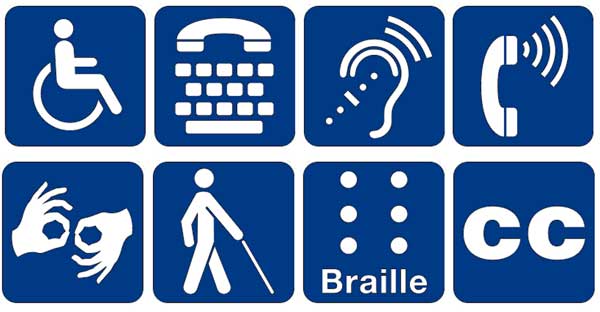Doing the right thing
August 2, 2015, Sunday Peter Tan, mail@petertan.com

WORKING on disability-rights advocacy is not just a matter of creating awareness campaigns and conducting training. There are a lot of activities behind the scenes where we strategise and plan our activities to ensure that we are of the same understanding and consistent in the information we disseminate.
As workers in this field, we take on multiple roles as activists, educators, leaders, organisers, negotiators and motivators due to the small number of us who are actively involved. Most of us are into this because we are directly affected; but not everyone who is affected is interested in becoming involved.
Firstly, it is due to apathy and complacency. Secondly, it requires undivided commitment that many find difficult to fulfil. As changes are slow in coming, we have no choice but to be in this for the long haul. Thirdly, the remuneration does not commensurate with the effort and time put in, which makes it a very unattractive endeavour. More often than not, we have to fork out money from our own pockets to support the activities we organise.
After working on this for 10 years, I realised that there are more failures than successes no matter how hard we try. This is a reality my fellow advocates and I have come to accept. There was a time when I became more and more dejected each time we failed to achieve what we set out to do. As a result, I got burnt-out and had to take a long rest to recover.
That is also the reason I am no longer perturbed by the outcomes. I have learnt to pace myself and not do more than I am able to handle. The frustrations are plenty but I have come to accept that as part and parcel of what I do. If I succeed, it is something gained, if not, I have not lost anything as it was never there in the first place. There will always be opportunities to knock at it again. Nevertheless, each small victory is still one step forward and one that motivates me to push ahead.
As disability is a universal issue that affects people across the globe, many of us work closely with organisations from other countries. It is not unusual for us to network and tap into each other’s resources and expertise to create a synergy that is mutually beneficial in advancing our cause.
I am fortunate to have begun my journey in disability-rights advocacy under the auspices of the renowned Japan International Cooperation Agency. Consequently, I had the opportunity to establish contacts with regional and global organisations through participating in training courses and conferences.
It is through such networking that I acquired the understanding of disability issues from international perspectives. I am fortunate that my peers were generous with their know-how. They shared what worked and what didn’t and I was able to adopt best practices in the inclusion and accessibility for disabled people.
One can’t study about disability rights advocacy from textbooks. There is no school in this world that teaches the intricacies of it. All of us learnt through trial and error rather than being formally educated on how to go about it. Experience was our best teacher.
While we come from different parts of the world, our goals are one and the same. We work in promoting the rights of disabled people. However, as cultures and mores are different from country to country, we have to utilise different approaches.
Activists in countries with liberal policies and strong social movements can use public protests to effect changes while more subtle tactics have to be applied in conservative societies in order to not run into trouble with the powers that be. That is why we have to wear many hats. When one method is ineffective, we have to use another. We have learnt to be flexible and adaptable. That is how we survive.
One fine example of the amount of background work and the benefits of cross border collaborations is the regional training courses that I have been part of for the past few years. There is a frequent need to discuss and consult with colleagues, experts and resource persons from around the country and in Japan. Physical meetings are not options considering the cost and time needed for travelling. Exchanging emails back and forth was tedious considering the number of topics we have to discuss.
Thankfully, Internet advancements have allowed us to communicate with colleagues near and far conveniently and cheaply in the comfort of our home or office. Long before we stepped into a lecture hall to conduct a course, my colleagues and I had already spent months discussing the curriculum and working on the logistics for participants coming from different parts of the world.
We even completed part of our training through weekly video conferencing over a period of six months. Even though our trainer was in based in Tokyo while the rest of us were scattered all over the country, we kept up with group video calls for the entire duration. We have indeed come a long way from the days of drums and smoke signals to letters and telegrams. Communication has never been easier.
All said, disability-rights advocacy is not a one-man job. No one can do it alone. We need cooperation and support from like-minded people to be effective. It involves a lot of hard work with little reward. We often have to be jacks-of-all-trades and switch between roles at the same time to get things to work. Despite that, my colleagues and I are doing this because it is the right thing to do, because this is our life and if we don’t do it, no one else will.
Read more: http://www.theborneopost.com/2015/08/02/doing-the-right-thing/#ixzz3uMvxh17h
